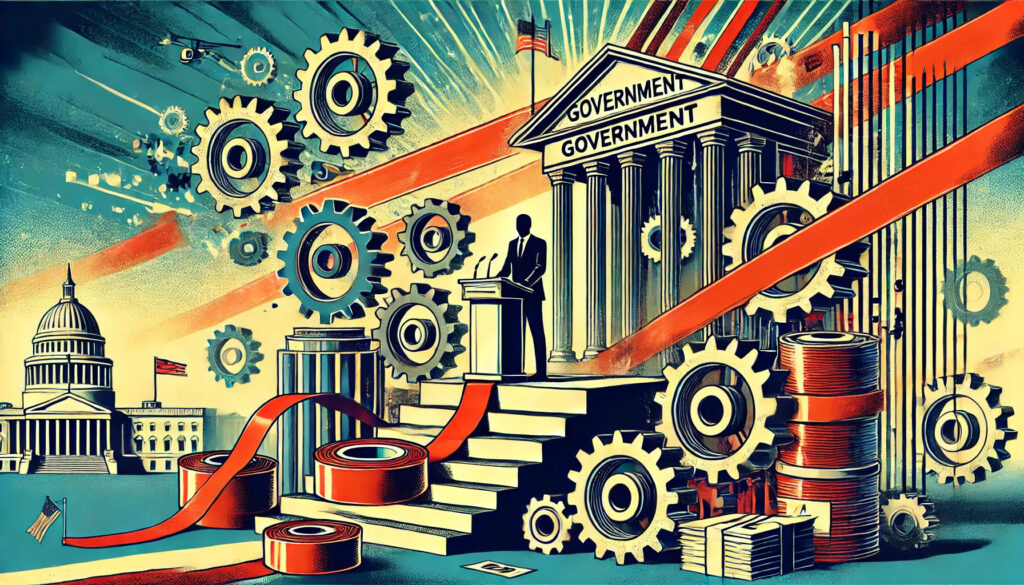In recent discussions, Vivek Ramaswamy has outlined a bold plan to tackle what he perceives as inefficiencies within the U.S. administrative state. Collaborating with thought leaders like Elon Musk, Ramaswamy envisions a future where the executive branch leverages its authority to reduce bureaucratic complexity and deliver swift, transformative change without waiting for congressional action.
This vision raises important questions about governance, efficiency, and democracy in America. Let’s explore the strengths, concerns, and broader implications of this approach.
What Is the Vision for Executive Reform?
Ramaswamy’s strategy revolves around using executive authority to address inefficiencies and power imbalances in the federal government. He argues that many policies are shaped by unelected bureaucrats who operate within an entrenched administrative state, which has often been criticized for being unaccountable and resistant to change.
This proposed reform emphasizes:
- Accountability: Returning power to elected officials.
- Efficiency: Eliminating unnecessary bureaucratic red tape.
- Decisiveness: Acting swiftly to honor voters’ mandates for sweeping change.
Strengths of the Approach
1. Increased Accountability: By reducing the influence of unelected officials, this vision seeks to enhance the accountability of government operations. Decisions would rest more squarely with those chosen by voters.
2. Enhanced Efficiency: Bureaucratic delays and redundancies are common criticisms of large governments. A streamlined system could deliver faster results on key initiatives.
3. Honoring Voter Intent: This approach prioritizes enacting the sweeping reforms that voters demand, rather than incremental, watered-down changes that often emerge from legislative compromises.
Potential Concerns
1. Concentration of Power: A reliance on executive authority risks eroding the balance of powers between the executive, legislative, and judicial branches, a foundational principle of American democracy.
2. Instability in Governance: Policies implemented through executive orders can be reversed by subsequent administrations, leading to inconsistency and uncertainty in government operations.
3. Impact on Expertise: Federal agencies employ experts in fields ranging from public health to environmental protection. Weakening these agencies could reduce the government’s ability to address complex challenges effectively.
4. Polarization: Dramatic reforms often deepen political divisions, potentially undermining public trust in institutions.
Broader Implications
This movement to “gut the administrative state” aligns with global trends where populist leaders push for more agile and responsive governments. While appealing to those frustrated with the status quo, it also challenges traditional governance structures that prioritize stability and checks on executive overreach.
Whether this vision succeeds or falters will depend on how it is implemented. Striking a balance between reform and stability is critical to maintaining trust and functionality in the federal government.
Conclusion
The debate over executive authority and bureaucratic reform is far from new, but Ramaswamy’s proposals bring renewed attention to the tension between efficiency and accountability in government. While bold action might fulfill voters’ demands for transformative change, it’s equally important to ensure such actions respect the democratic principles and constitutional frameworks that safeguard the nation’s stability.
The U.S. administrative state, often labeled as inefficient, may indeed benefit from reform—but how those reforms are achieved will define their success and impact on the nation.







